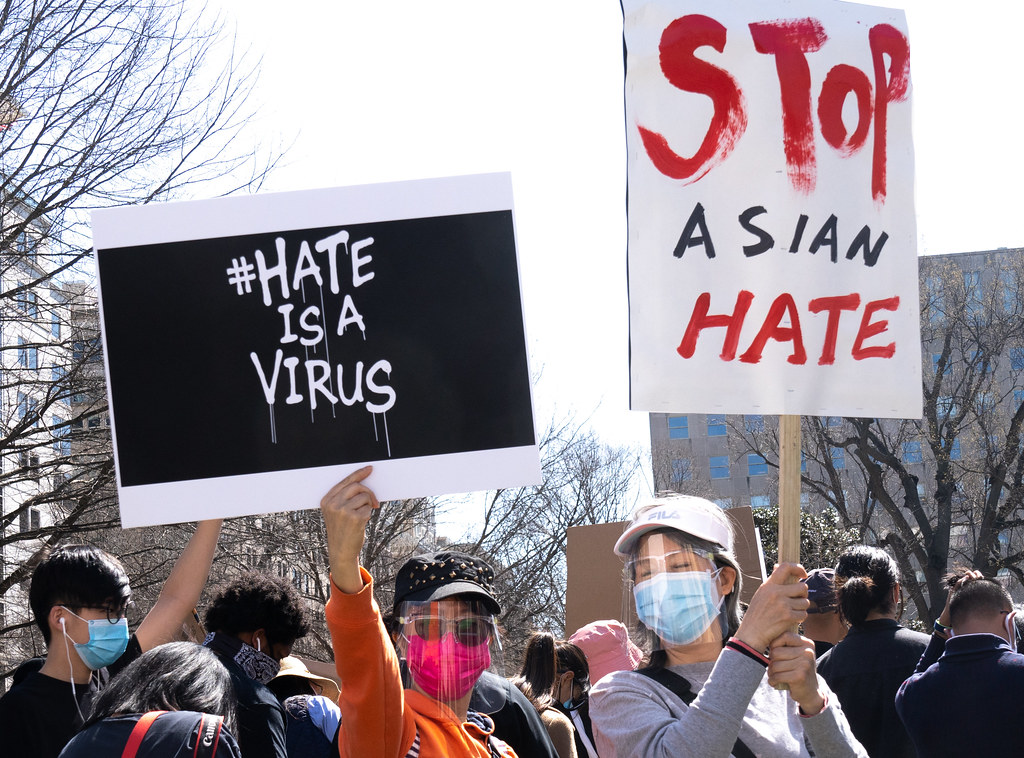The following is a reprint of a Google Doc by author Mimi Lok. You can read the original document here.
In the week since the Atlanta shootings, which claimed the lives of eight people—six of whom were AAPI (Asian American & Pacific Islander) women—I’ve seen my own experience reflected in the AAPIs around me in heartbreaking and illuminating ways. What has emerged most clearly are the layers upon layers of pain—the grief and anger for the victims and their loved ones, the fear for our own loved ones and for ourselves, and the added hurt of invisibility and silence within work, family, and friendship circles.
Within the first 36 hours of hearing about the shootings, I checked in with dozens of AAPI folks and exchanged chats and texts, emails of support. In many cases I heard that I was the only person, or one of the very few, to have checked in with them since the shootings. People they trusted or considered close had not reached out or publicly acknowledged the shootings in a timely or adequate way—or not at all. I myself had the same experience. Such lack of acknowledgment compounds the feelings of isolation, which adds to the existing pain.
I’ve made this list because I believe that this layer of pain–this added burden—can and should be lifted from the shoulders of AAPI folks, and because the Atlanta shootings and the past year of anti-Asian violence are not anomalies. They will repeat and continue. They are part of a long, hard, historical fight against injustice toward Asians in its myriad forms—from micro-aggressions and legally sanctioned discrimination to expressions of lethal violence—which we must fight together to have any chance of positive, lasting change. Any activism and advocacy in support of AAPIs is ultimately superficial if it’s not also reflected and rooted in thoughtful, ongoing support for the AAPIs in your life.
This list is by no means comprehensive or foolproof; these are suggestions that serve as a starting point for necessary conversations and actions.
- Check in with your AAPI friends, family, colleagues, supervisors, etc. as soon as you’re aware of what’s happened. Don’t wait for them to reach out first, and don’t wait to send the perfectly worded text or for when you have time for a call. Let them know they’re not alone. Text/email straight away. Something along the lines of: “Thinking of/Grieving for you and AAPI communities during this difficult time. Here for anything you need. You are not alone. No pressure to respond” is probably fine in most cases.
- Don’t make it about you. Center the experience of the person you’re checking in with. Whatever you do, don’t make it about you and what you’re going through, even if you are worried sick and heartbroken for them. By doing so, it inadvertently puts your AAPI loved one/colleague in a position where they feel as if they need to take care of your feelings because they care about you, too—but it adds to the already considerable emotional strain they’re under. Keep checking in periodically to reinforce your support, without expecting a response. Give space if that’s what’s needed.
- Publicly acknowledge injustice against AAPIs. If you’re active on social media, post about it to show your solidarity and raise awareness. This doesn’t mean you shouldn’t also post pics of your cute pets, vaccination, delicious food, and favorite nature spots. But if that’s the only thing you post in the wake of a violent attack that is deeply impacting the AAPIs in your life and larger communities, it can come off as careless and tone deaf at best, and callous at worst. Pause to acknowledge.
- At work, make an organizational statement of solidarity. Internally, name what happened in basic terms, e.g. “The Atlanta shootings.” No vague euphemisms (“recent events”) or sensationalized terms (“the horror show”).
- Don’t put AAPI staff or students on the spot to talk about their feelings in a group setting without prior consent. Check in with them individually beforehand and ask if they’d be comfortable talking about it. If they say no or express uncertainty, let it go. If they say yes, talk through how to address it and be receptive to their feedback.
- Give AAPI staff, students, etc., time, space, and flexibility around workload and deadlines so that they feel supported in prioritizing their well-being. This doesn’t take away from “normal” work. Care and empathy should be an essential part of the work.
- Use this as an opportunity to inform your company’s/institution’s DEI (Diversity, Equity, and Inclusion) work. How are you currently ensuring meaningful inclusion of AAPIs and that they are seen and supported? What more needs to be done? What needs to stop?
- Share this list with anyone you think could use it. Lessen the silence and invisibility.
Finally, if you’re taking this as an opportunity to learn more about anti-Asian violence and discrimination and what you can do to be a better ally-accomplice-agitator, that’s great. Your support is crucial. But do not place the burden on AAPIs in your life to educate you. There are plenty of easily Google-able resources out there by AAPI scholars, activists, and organizations that you can seek out. A few are below.
- Support Georgia’s Asian-American communities
- Asian Americans Advancing Justice—Report An Incident
- Asian Americans Advancing Justice (Facebook page)
- Stop AAPI Hate
- Asian American Legal Defense Fund
- AAPI Women Lead
- Various Asian American scholars, historians, and activists
Mimi Lok is the author of the story collection Last Of Her Name (Kaya
Press), winner of the 2020 PEN/Robert W. Bingham Prize and a California
Book Award. She is also the founding director and executive editor of
Voice of Witness, an award-winning human rights & oral history nonprofit
that amplifies marginalized voices through a book series and a national
education program.

